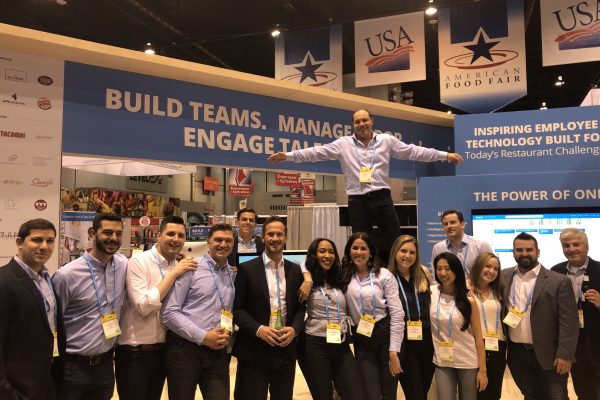Explained: Chicago Fair Workweek Regulations

- By, October 10, 2019
Fair Workweek regulations are coming into force across the nation. These ‘predictive scheduling’ laws aim to promote flexibility for shift workers and protect against unfair scheduling practices.
The rules are complex and fines for violations are heavy
A case from December 2017, involving minimum wage and overtime violations, showed the tough penalties in place and the willingness of the authorities to enforce employment law. An Italian restaurant in Chicago was ordered to pay $339,000 in fines and damages after paying non-tipped trainees as little as $3.75 an hour and failing to pay time-and-a-half to employees who worked over 40 hours a week.
On January 1 this year, Chicago City Council created a new department, The Office of Labor Standards, to “proactively investigate employers it believes could be violating labor laws”. On top of this, on July 1, 2020, new legislation comes into force with even stricter predictive scheduling laws and penalties.
It’s important for operators to be aware of these developments, but for now, we’ll focus on the current laws for restaurants and franchisees in Chicago. Among other headaches, shifts must be planned 14 days in advance and records must be immaculate to avoid costly fines.
And the fact these regulations vary significantly state-by-state makes it all the more difficult for restaurant groups who operate across multiple cities.
Many operators have put dedicated finance teams in place to identify violations and deal with penalties to ensure compliance. But this approach deals with the symptoms of the problem rather than the cause.
What is needed is a holistic solution that tackles the root cause while also mitigating risks throughout the business, enabling all departments to consistently and proactively work together.
Giving managers the power to use predictive scheduling effectively, minimizes violations and pushes any violation data straight to payroll to be dealt with in accordance with the law.
The result is greater efficiency and less stress for managers, more flexibility and protection for employees, and better results for the business – not only in terms of happy workers but in costs saved and embarrassment avoided.
Let’s take a look at the rules and penalties for the Windy City and then how Harri’s system deals with the many challenges they pose to fast food operators in the city.
Regulations for Chicago
Here’s an overview of the main regulations and related penalties that restaurant and fast-casual operators in Chicago should be aware of.
Good Faith Estimate
Employees must be provided with a Good Faith Estimate of:
- The median number of hours they are expected to work in a workweek.
- Whether they are expected to work on-call or not.
- A subset of days and a subset of times or shifts that the employee can expect to work, or days of the week and times or shifts on which the employee will not be scheduled to work.
An employee may request that the employer modify the estimated work schedule.
Right to Rest
Employees have the right to decline work hours scheduled:
- Less than 11 hours after the end of the previous day’s shift.
- During the 11 hours following the end of a shift that spanned two days.
An employee who agrees in writing to work such hours must be compensated 1.5x their regular rate of pay for any hours worked less than 11 hours following the end of a previous shift.
Advanced Notice on Scheduling
- Schedules must be provided two weeks in advance
- New employees must be included in an existing schedule with other employees
- Employees have the right to decline any previously unscheduled hours that the employer adds to the schedule with less than 14 days’ notice.
- The employer is required to pay no less than 1.5x the employee’s regular rate of pay per hour for any scheduled hours the employee does not work, if the employer, with less than 24 hours’ notice:
-
- Subtracts hours from a regular or on-call shift.
- Cancels a regular or on-call shift.
-
Predictability Pay for Schedule Changes
Predictability pay offers protection against last-minute schedule changes and is paid at the employee’s standard hourly rate.
The employer must pay the following penalties, for schedule changes with:
- No change in number of hours:
- One hour of predictability pay.
- Additional Hours
- One hour of predictability pay.
- Subtracted Hours
- More than 24 hours’ notice: one hour of predictability pay.
- Less than 24 hours’ notice: at least 1.5x the employee’s regular hourly rate for any scheduled hours.
On-call protection
- More than 24 hours’ notice: At least 1.5x the employee’s regular hourly rate for any scheduled hours.
- Less than 24 hours’ notice: one hour of predictability pay.
Exceptions
The above requirements don’t apply under any of the following circumstances:
- Operations cannot begin or continue due to:
-
- Threats to employers, employees, or property.
- Civil authorities recommending that work not begin or continue.
- Failure of public utilities to supply electricity, water, or gas, or failure in the public utilities or sewer system.
- Acts of nature (including but not limited to flood, fire, explosion, earthquake, tidal wave, drought), war, civil unrest, strikes, or a similar cause not within the employer’s control.
-
- A schedule change is the result of a mutually agreed upon shift trade or coverage arrangement between employees, subject to any existing employer policy regarding required conditions for employees to exchange shifts.
- An employee requests a shift change in writing, including but limited to use of sick leave, vacation leave, or other policies offered by the employer.
Access to Hours for Existing Employees
This part of the legislation requires the employer to give fair and reasonable access to hours to existing and new employees. It sets out requirements for how hours are advertised so that they can be distributed fairly.
- Before hiring new employees, the employer must offer additional hours of work to existing employees.
- Employees have the right to refuse this work. An employee who wishes to accept the additional hours must do so in writing.
- The employer must post written notice of available work shifts for at least three consecutive calendar days, unless a shorter posting period is necessary in order for the work to be timely performed.
- The offer must be posted in a conspicuous location in the workplace where notices to employees are normally posted, or electronically on an internal website in a conspicuous location readily accessible to all employees.
- The notice must include:
-
- The total hours of work being offered.
- The schedule of available shifts.
- Whether those shifts will occur at the same time each week.
- The length of time the employer anticipates requiring coverage of the additional hours.
- The process by which employees may notify the employer of their desire to work The offered hours.
- An advisement that an employee may accept a subset of the shifts offered.
- The criteria the employer will use for the distribution of the shifts.
-
- The employer may post the notice concurrently at the location where the shifts described in the notice will be worked, locations other than the location where the work is to be performed, and to external candidates.
Harri’s Intelligent Scheduling
Harri’s intelligent scheduling system automatically keeps operators up-to-date with regulations, even across multiple jurisdictions. It helps you not only to actively comply with regulations, but also to use predictive scheduling to improve your business.
Here’s a rundown of the main features.
Good Faith Documentation
The system includes the following features to make employees aware of the Good Faith Schedule during onboarding:
- The automatically generated Good Faith Estimate document provides new hires with a clear schedule in accordance with the local laws.
- This is seamlessly integrated into the onboarding process for review and e-signature by the new hire.
Direct Shift Swaps
Harri’s Hot Fill system allows employees to exchange shifts directly without employer involvement. The peer-to-peer shift exchange does not violate the above rules on shift swaps based on pay rate and overtime thereby avoiding late-change penalties.
Hot Fill – “Uber for your employees”
Here’s how it works:
- An employee is unable to attend work and they release the shift.
- Other employees have indicated they wish to work on that day if a shift becomes available (note, they are not “on-call”).
- The system alerts these employees via SMS and push notification.
- The first employee to accept gets the shift.
- The manager on duty is notified of the employee’s ETA and distance from work.
This system offers more flexibility for employees and makes it far easier for managers to oversee a shift swap, all while avoiding costly late-change penalties.
Calculation of Right to Rest Compensation Payment
The Right to Rest regulation ensures employees adequate rest between shifts. Harri helps managers to comply by alerting them if this rule is violated when the schedule is created, or any time after it is created, so they can proactively make changes to the schedule.
Manager Alert for Penalties Related to Schedule Changes
Managers have the ability to define compensation rules for changes after the advance notice period. Shift change premium pay is indicated on the schedule itself and included in the total wage cost calculations.
This means managers are fully aware of the cost impact of schedule changes before they put them in place so they are able to plan and make strategic decisions accordingly. It also makes it easy for the finance department to calculate the costs and pay the right amount to the employee.
Predictive Scheduling Premium Reporting
This feature provides managers with reports indicating, in detail, all the premium payments resulting from schedule changes. These can then be passed seamlessly to the finance department where they can be processed.
They can also be analyzed and scrutinized by management so that key decisions can be made on the company-wide scheduling policy to avoid future fines.
Make Sure Your Business is Protected
The best way to ensure compliance, at scale and across states and cities, is to use a holistic system designed for the purpose.
Harri’s smart scheduling tools simplify every stage of the process, dealing with the cause of the problem in order to minimize violations and streamline communication between departments, managers, and employees.
To see how you can use the system to protect your business and lead a happy, better-rested team, get started with Harri’s smart scheduling tools.
Learn more about Fair Workweek regulations in New York City and San Francisco.




